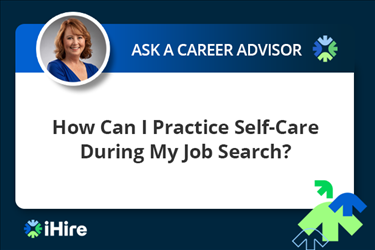- Job Seeker Resources
- |
- Last Updated: August 02, 2021

The Dos and Don’ts of Starting a New Job
When starting a new job, it’s important to start off on the right foot and make a great first impression. If your colleagues and manager view you as dependable and responsible, they will be more trusting and accepting; but if they are questioning your trustworthiness or work ethic, they might be leery of giving you additional responsibilities. To excel as the new employee, you should act as a polished professional and allow your work performance to speak for itself.
Do arrive at work before your actual start time.
One of the hardest parts of starting a new job is adjusting to your schedule. Learning a new commute can be a challenge, but it’s something you need to handle. As a new employee, one of the worst things you can do is show up late (especially with coffee or breakfast in hand).
You should arrive around 10 minutes before your actual start time to settle in and before you begin working. Even remote employees should be signed in and ready to go a few minutes early. (Don’t set your alarm to go off few minutes before start time.)
Don’t dress too casually.
After starting a new job, you should still dress to impress and make sure your clothes properly fit you and aren’t wrinkled. You should look at members of management and take cues from how they dress. Even if other employees dress more casually than management, you should make the effort because it will not go unnoticed.
If you have any questions on what is acceptable or how employees typically dress (business casual or business formal), reach out to someone in human resources or ask the person training you. For remote employees, don’t take working from home as a chance to work in your pajamas or old t-shirt; instead, you should try to look presentable even if no one else can see your killer outfit.

Do ask any questions that you have.
Being a new employee can be extremely intimidating, especially when you have questions to ask. It can be scary to ask questions (even simple questions like where the bathroom is), but people won’t think twice about answering your questions. It’s better to ask your questions than to do something wrong or waste time looking for the answer that could have easily been provided.
Don’t continually spend time on personal activities.
As a new employee, it’s crucial to show your professionalism – don’t continually check your phone or have personal situations to address regularly. Your employers are paying you to handle the needs of the company, which means not taking personal phone calls at work, routinely asking for time off at the last minute, or frequently calling in sick.
Of course, everyone will have unforeseen emergencies arise, and that’s completely acceptable. Your employers will be much more understanding if they know you aren’t making excuses or always on your phone.

Do try to make new friends with your colleagues.
Typically, you spend more time with your colleagues than your own family so it’s smart to make friends with your coworkers. Showing gratitude when coworkers help show you the ropes or engaging in group conversations are excellent ways to start off on the right foot. It’s best to avoid negatively talking about how the former employee handled your position because some of your new colleagues are probably still friends with them.
Don’t be afraid to take on additional responsibilities.
If you can handle it, volunteer to take on additional tasks or help your colleagues with their projects and tasks. This would be a great way to learn more about the company and will provide powerful insight into how other departments in your new company operate. However, you should only volunteer for extra responsibilities if you can handle your current workload in a timely manner. Being humble is also key because as the new employee, you shouldn’t come in as “too good” to perform a certain task.
Job Seeker Sign In
Do bring up new ideas in a respectful way.
As a new employee, you will bring a fresh perspective to the company and position, but it’s important not to overstep your boundaries. To bring up new ideas, you should first learn about how your new company handles the procedure. Perhaps you need to suggest your idea to your manager who will then suggest it higher up the food chain. You should always feel welcome to suggest new ideas but have to do it respectfully. so you don’t appear too overeager or power-hungry.
Don’t continually talk about yourself.
If you constantly bring up your former job or prior experience, your colleagues will quickly grow tired of the conversation and might even suggest you go back if you miss it that much. An occasional mention is fine, but people don’t want to hear about how your old company left early on Fridays or how much your college professors praised you.
Your new employees will be able to see how great you are by your work ethic, performance, and professionalism, but they don’t need to continually hear about your greatness from you. Besides, you learn more from listening instead of talking.
Starting in a new job can be extremely daunting even for the most confident people, but it’s important to remember that everyone was new once.
About the Guest Author
Valerie Cox is a PR Specialist with Franchise Direct.
Sign In or Register to access all articles and insider tips for help in your job search.
Search for iHire Jobs
RELATED JOBS
RELATED RESOURCES
Find the Right Job Faster
- Get personalized job matches sent to your inbox every day
- Connect directly with employers before your competition
- Advance your career with expert advice on interviewing, salary negotiation, and more
We value your privacy




